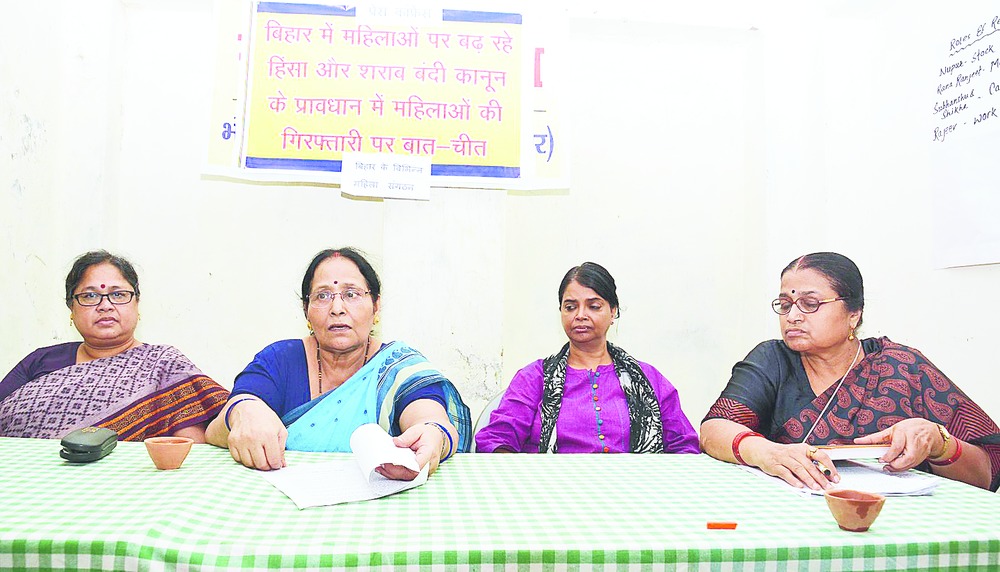
Patna, Aug. 8: For the first time since prohibition came into force in Bihar, a women's organisation today spoke against the Bihar Prohibition and Excise Bill 2016, which the state has touted as an instrument of women's empowerment.
Bihar Women's Network, which comprises 1,000 members from 15 women's organisations, has slammed the government's move of adding several new "anti-women" provisions in the bill.
Founded in 1989, the Bihar Women's Network, claims to have its reach across the state.
Chief minister Nitish Kumar had branded the prohibition act as a tool to empower women in the state as he had reasoned the liquor ban would help curb domestic violence and crime apart from improving the financial condition of the poor families in the "grip" of addiction to alcohol.
"We will initiate a state-wide movement if the government did not withdraw the controversial provisions in the new legislation," said Neelu, one of the five women activists, who addressed a news conference. But the women's body did not specify the kind of movement they would launch.
Members of Bihar's Women's Network today slammed the state for adding provisions according to which women too would be responsible for an individual family member found drunk or drinking. They also criticised the provisions according to which collective fines could be imposed on villages, towns or community if repeated violations of prohibition occur. The members the provision would ultimately affect the women in the villages.
"Doesn't chief minister Nitish Kumar know that women are still not empowered to rule their husbands in a family? How can a woman stop her husband from consuming liquor who cannot even decide the number of children she would have? Not only would her husband beat her up if she resisted but later police would also put her behind bars. The act, which was supposed to empower women, would become a tool to inflict atrocities on her," said Nivedita Shakeel, a member of the network.
Shazeena, another member of Bihar's Women Network was more vocal against the new provisions of the prohibition act.
"The government's motive behind bringing the act was to bring down cases of atrocities on women but is the government blind that it cannot see cases of rape occurring in places like Muzaffarpur, Vaishali, Motihari and other places, which are not very far from the state capital? Instead of taking strict action against culprits, the government is adding provisions to the act, which are only going to increase the difficulty for them."
"The uterus of the minor rape victim, being treated at Patna Medical College and Hospital, has been removed owing to medical reasons. The girl would never be able to conceive but the accused are free. The government has not been able to nab the criminals. They are busy in bringing new provisions in the prohibition act. The government's theory that liquor was the main reason of various crimes against women was hollow."
Asked about women's organisations' protest against anti-women provisions in the new excise act, excise minister Abdul Jalil Mastan was not ready to accept that Bihar Women's Network was a genuine women's organisation.
He later corrected himself and said: "Maybe some women do not agree to the new prohibition act but the majority of them support the new prohibition act and it's a known fact."
"The organisation approached the government to come up with the prohibition act. The government has only implemented their demand. Many people are spreading rumours about women's safety owing to the act but if a woman does not declare the status of her liquor-consuming husband, police will catch her. Members of her family will confront her if she declares this status to police or before any cop action is taken. The male members of her family would only be put into de-addiction centres for some time and no case would be booked against them under the sections of the prohibition act," said Mastan.











